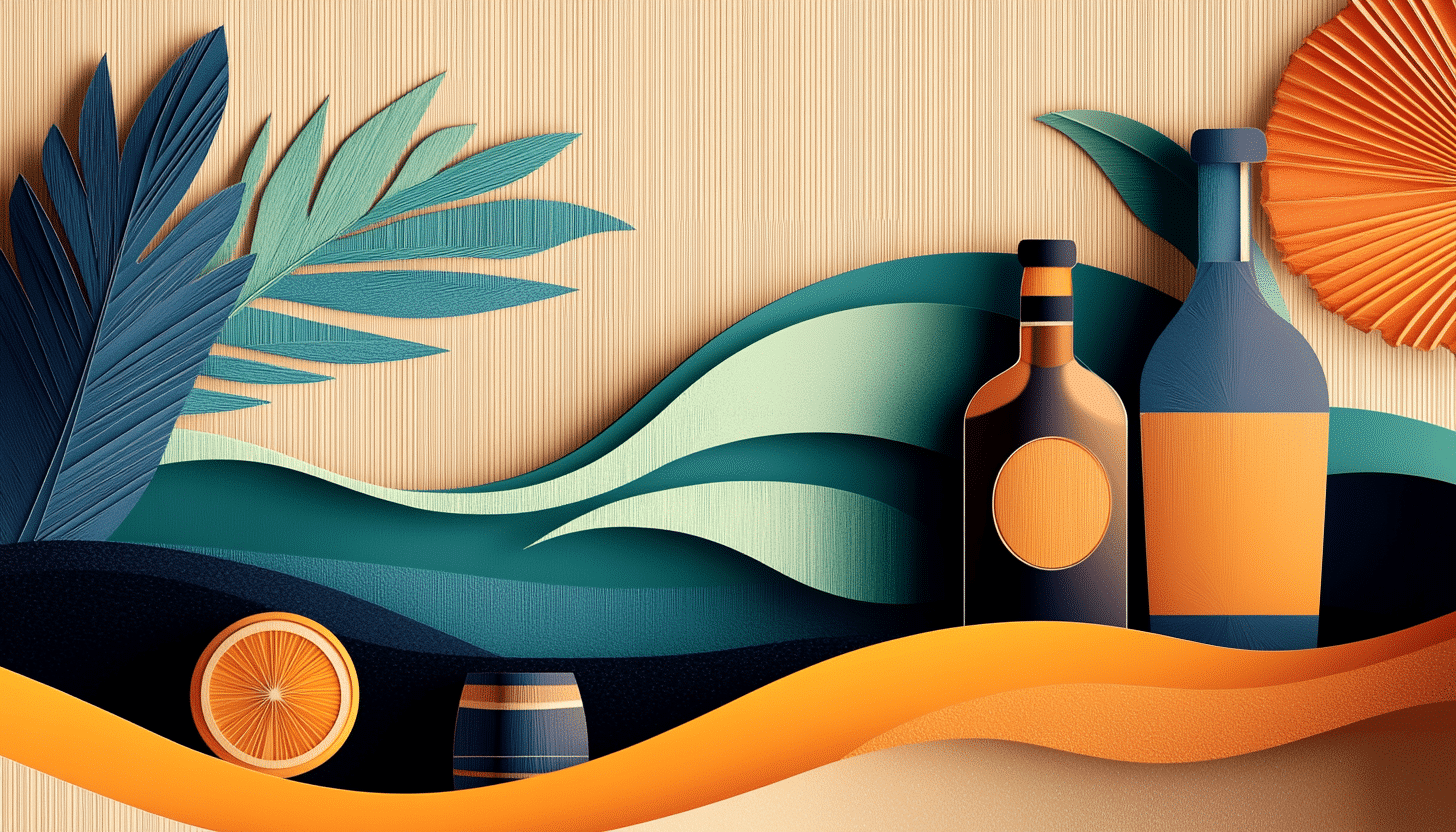What is World Rum Day?
World Rum Day is held each year on the second Saturday of July and is celebrated worldwide. This global observance brings together rum lovers, producers and bartenders to explore and enjoy the rich tradition of rum. It honours the cultural importance of this spirit, from its origins in the Caribbean to its presence in bars and homes across the globe. Whether enjoyed in cocktails or sipped neat, rum offers complexity, history and craftsmanship in every glass.
The day encourages people to discover new styles of rum, from light and golden to dark, spiced and aged varieties. Distilleries and bars often organise tastings and events to showcase local and international brands. World Rum Day highlights not just the drink itself, but also the communities, stories and flavours that surround it. It creates a moment for celebration, reflection and shared enjoyment. Through education and enjoyment, the day promotes deeper appreciation for this global spirit.
History and Origin
World Rum Day was founded in 2019 by spirits writer Paul Jackson. He wanted to create a global celebration focused on the heritage, quality and diversity of rum. By placing the event on the second Saturday of July, the day aligns with summer in many parts of the world, when outdoor gatherings and tropical drinks are popular. Since its launch, it has grown to include events in dozens of countries, involving both rum producers and fans.
The day was inspired by the need to give rum the same kind of international recognition as other major spirits. While rum has always had regional observances and festivals, this day aims to unite the global rum community. It highlights the role of rum in history, from maritime trade to modern mixology. As the event gains popularity each year, it continues to raise awareness about quality rum and responsible enjoyment. World Rum Day is now recognised by a growing number of distilleries, festivals and food communities.
Who participates in World Rum Day?
- Bartenders and mixologists: showcase rum in classic and creative cocktails
- Rum brands and distilleries: host tastings and release limited editions
- Food and drink enthusiasts: explore pairings and recipes with rum
- Cultural organisations: share the heritage and history behind rum traditions
- Everyday rum fans: enjoy their favourite rum at home or with friends
Slogans and Themes
World Rum Day embraces themes of craftsmanship, discovery and celebration. Popular slogans include “Celebrate the Spirit,” “Global Rum Culture,” and “A World of Flavour.” These messages focus on the rich history and wide variety that rum offers. The day often highlights regional traditions while encouraging people to explore new expressions and producers.
Colours, Symbols and Patterns
Colours
- Amber: reflects the golden tones of aged rum
- Deep brown: evokes complexity and richness
- Gold: symbolises heritage and value
Symbols
- Rum barrel: represents the ageing process
- Sugarcane: connects to rum’s agricultural roots
- Sailing ship: ties rum to maritime trade and history
Patterns
- Wood textures: evoke traditional barrels and distilleries
- Wave lines: link to the oceanic journey of rum
- Label motifs: inspired by vintage rum branding
Most used hashtags
- #worldrumday
- #rumculture
- #rumtasting
- #rumcocktails
- #spiritlovers
How do you celebrate World Rum Day?
- Visit a local distillery: learn about the production process and sample different styles
- Attend a tasting event: join in-person or virtual sessions to compare brands and flavours
- Make a rum cocktail: try classics like a daiquiri or mojito
- Host a rum and food pairing: explore how different types of rum work with savoury or sweet dishes
- Share the experience: post your thoughts, recipes or discoveries on social media
Why is World Rum Day important?
World Rum Day is important because it gives recognition to one of the oldest and most culturally rich spirits in the world. It celebrates the communities and craftspeople behind each bottle, from farmers and distillers to bartenders and storytellers. The day helps people understand how rum is made, why it tastes the way it does and what makes each variety unique. It also brings attention to the role rum has played in trade, tradition and celebration across continents.
By participating in this day, people support small producers, explore new flavours and gain deeper insight into the spirit’s history. Rum is not just a drink, but a reflection of place, climate and culture. The day invites all people to taste, learn and connect. It is a toast to tradition and a bridge to discovery.
Features
Second Saturday of July: Rum Day
Why do you keep falling for the same type?
Read the article Lovemaps: the hidden blueprint of our love.

